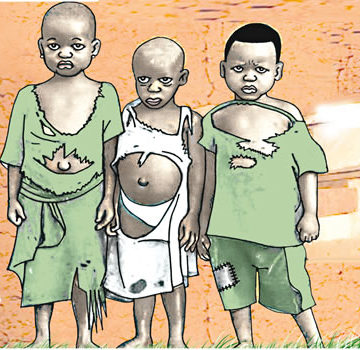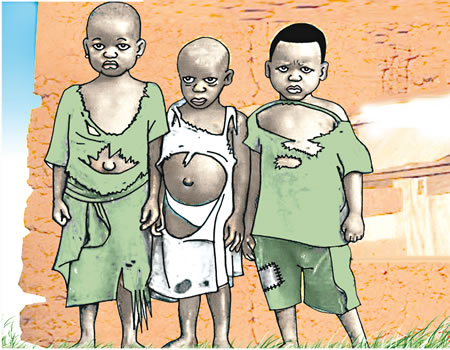
In addition, the country is home to the largest number of chronically undernourished children in the world.
Minister of State, Ministry of Budget and National Planning, Mrs Zainab Ahmed gave the statistics while delivering a keynote address of the week in Abuja, saying “f nothing is done, 1 in 5 (500,000) children will die annually (global nutrition report, NDHS 2013 report).
“Malnourished children tend to have lower Intelligent Quotient (IQ) and impaired cognitive ability with resultant negative effect on their performance in school and productivity in later life.
“No developmental programme is complete without a package for nutrition improvement. Under constitutional democracy, the right to food and nutrition is the most important right of all rights, therefore every human rights agenda must accommodate issues of food and Available evidence shows that investments in nutrition prevent undernutrition, builds human capital, boost shared prosperity and improves health outcomes.”
According to her, returns from programmes for improving nutrition far outweigh their costs while delay/failure in addressing malnutrition attracts disproportionately high costs in terms of higher budget outlay as well as lost GDP and this makes investment in nutrition imperative in the much desired economic recovery and growth in the country as encapsulated in the ERGP 2017 2020.
This second edition themed: “Improved Nutrition and Empowerment” with the slogan ‘Healthy Diet, Healthy Living’ aims at building on the gains of the maiden edition.
To commemorate the 2017 edition of the Nutrition Week, which has the theme “Improved nutrition and Empowerment”, activities have been articulated which include this Press briefing, road walks, advocacy in churches and mosques as well as symposia and public enlightenment campaigns aimed at behaviour change towards healthy diets by the general public.
Ahmed explained that the revised National Policy on Food and Nutrition which was launched as a 10-year blueprint during the 2016 Nutrition Week has been disseminated nationwide as part of the strategy for ensuring its smooth implementation.
“It is reported that almost all the States have been able to domesticate the Policy and have gone ahead to develop their specific costed plan of action.
“Other dividends arising from the launch of the revised Policy included the development of sectoral strategies in line with the policy by Ministries of Agriculture and Rural Development, Health and others. Partners are also keying into the approved Policy to situate their various interventions to push the frontiers of the fight against malnutrition in Nigeria.
“However, to avoid being caught up in the euphoria of celebrating mediocrity, the Ministry has added a milestone in coming up with the draft implementation plan for the Policy which will soon be finalised. I would, therefore, like to acknowledge the contributions of various stakeholders as well as technical assistance provided by our Development Partners.”






